Dr. Joseph Larner Memorial Lecture in Pharmacology
Dr. Joseph Larner
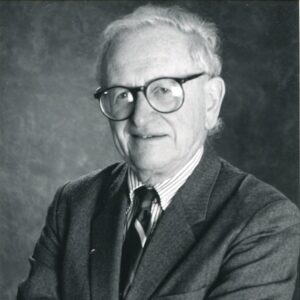 Dr. Joseph Larner (January 9, 1921 – January 28, 2014) served as Chairman of the Pharmacology Department from 1969-1990. He led a distinguished career, garnering numerous scientific awards including the Banting Medal for Scientific Achievement in Diabetes Research, the Virginia Lifetime Achievement Award in Science, and he was elected to the Institute of Medicine of the National Academy of Sciences. Dr. Larner’s notable research was focused on the study of insulin activity with the goal of improving diabetes treatments and, in 1974, he founded the UVa Diabetes Center for Research. The Larner family—wife Frances and sons Andrew, James, and Paul—endowed the Joseph Larner Annual Memorial Lecture in Pharmacology to explore the pervasive role of metabolism/cell signaling in human disease. Gifts from the family, as well as Dr. Larner’s UVa colleagues and other scientists, who respected his work, provide support for this annual lecture, and continue Dr. Larner’s legacy at the School of Medicine
Dr. Joseph Larner (January 9, 1921 – January 28, 2014) served as Chairman of the Pharmacology Department from 1969-1990. He led a distinguished career, garnering numerous scientific awards including the Banting Medal for Scientific Achievement in Diabetes Research, the Virginia Lifetime Achievement Award in Science, and he was elected to the Institute of Medicine of the National Academy of Sciences. Dr. Larner’s notable research was focused on the study of insulin activity with the goal of improving diabetes treatments and, in 1974, he founded the UVa Diabetes Center for Research. The Larner family—wife Frances and sons Andrew, James, and Paul—endowed the Joseph Larner Annual Memorial Lecture in Pharmacology to explore the pervasive role of metabolism/cell signaling in human disease. Gifts from the family, as well as Dr. Larner’s UVa colleagues and other scientists, who respected his work, provide support for this annual lecture, and continue Dr. Larner’s legacy at the School of Medicine
Larner Lecture Archive
Bryan Roth, PhD
Michael Hooker Distinguished Professor, Pharmacology, UNC. Director, NIMH Psychoactive Drug Screening Program, Eshelman School of Pharmacy. Fellow of the American Academy of Arts and Sciences. Member of the National Academy of Sciences Lineberger Comprehensive Cancer Center.
“Synthetic and chemical neurobiology” March 07, 2025
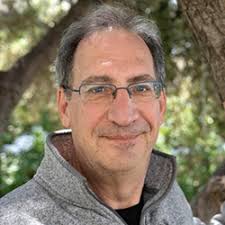 Bryan L. Roth MD, PhD is the Michael Hooker Distinguished Professor of Pharmacology at the University of North Carolina Chapel Hill School of Medicine. Dr. Roth received his MD and PhD (Biochemistry) from St. Louis Uni-versity in 1983 and subsequently trained in pharmacology (NIH), molecular biology (Stanford) and Psychiatry (Stanford). Prior to coming to UNC, Dr. Roth was a Professor of Psychiatry and Biochemistry at Case Western Re-serve University School of Medicine where his clinical specialty was treatment-resistant schizophrenia. Dr. Roth has published nearly 500 papers in the general areas of molecular pharmacology, structural biology and synthetic biology including 28 papers published in Science, Nature and Cell over the past decade. Scientific highlights include creation of the widely used chemogenetic platform dubbed ‘DREADDs’ and the elucidation of the structures of LSD and antipsychotic drugs to their molecular targets. Dr. Roth was elected to the National Academy of Medicine of the National Academy of Sciences in 2014 and the American Academy of Arts and Sciences in 2019. He has received many honors including the Goodman and Gilman Award for Receptor Pharmacology, the PhRMA Foundation Excellence in Pharmacology Award, a NARSAD Distinguished Investigator Award and the IUPHAR Analyt-ical Pharmacology Lectureship. Dr. Roth also given more than 40 named lectures including the 2017 Martin Rodbell Lecture and a Presidential Special Lecturer at the 2018 Society for Neurosciences meeting.
Bryan L. Roth MD, PhD is the Michael Hooker Distinguished Professor of Pharmacology at the University of North Carolina Chapel Hill School of Medicine. Dr. Roth received his MD and PhD (Biochemistry) from St. Louis Uni-versity in 1983 and subsequently trained in pharmacology (NIH), molecular biology (Stanford) and Psychiatry (Stanford). Prior to coming to UNC, Dr. Roth was a Professor of Psychiatry and Biochemistry at Case Western Re-serve University School of Medicine where his clinical specialty was treatment-resistant schizophrenia. Dr. Roth has published nearly 500 papers in the general areas of molecular pharmacology, structural biology and synthetic biology including 28 papers published in Science, Nature and Cell over the past decade. Scientific highlights include creation of the widely used chemogenetic platform dubbed ‘DREADDs’ and the elucidation of the structures of LSD and antipsychotic drugs to their molecular targets. Dr. Roth was elected to the National Academy of Medicine of the National Academy of Sciences in 2014 and the American Academy of Arts and Sciences in 2019. He has received many honors including the Goodman and Gilman Award for Receptor Pharmacology, the PhRMA Foundation Excellence in Pharmacology Award, a NARSAD Distinguished Investigator Award and the IUPHAR Analyt-ical Pharmacology Lectureship. Dr. Roth also given more than 40 named lectures including the 2017 Martin Rodbell Lecture and a Presidential Special Lecturer at the 2018 Society for Neurosciences meeting.
Ronald Evans, PhD
Professor and Director, Gene Expression Laboratory, March of Dimes Chair in Molecular and Developmental Biology, Salk Institute for Biological Studies
“Nuclear Receptors: Overcoming Insulin Resistance and the Obesity Epidemic” March 22, 2024
Ronald Evans is an authority on hormones, both their normal activities and their roles in disease. A major achievement in Evans’ lab was the discovery of a large family of molecules, called nuclear hormone receptors, which respond to various steroid hormones, vitamin A and thyroid hormones. These hormones help control sugar, salt, calcium, and fat metabolism, affecting our daily health as well as treatment of disease. The receptors Evans discovered are primary targets in the treatment of breast cancer, prostate cancer, pancreatic cancer, and leukemia, as well as osteoporosis and asthma.
In addition, Evans’ studies led to a new class of PPAR delta drugs called exercise mimetics, which promote the benefits of fitness without the need to train. Exercise mimetics represent an important advance in addressing problems arising from excess weight and obesity, such as frailty, muscular dystrophy, and type 2 diabetes.
Marcia Haigis, PhD
Professor of Cell Biology, Harvard Medical School
“Multifaceted Mitochondria in Health and Disease” October 21, 2022
 Marcia C. Haigis, Ph.D., is a Professor in the Department of Cell Biology at Harvard Medical School in Boston, MA, a member of the Paul F. Glenn Center for the Biology of Aging, and the Ludwig Center at Harvard Medical School. The Haigis laboratory focuses on the role that mitochondria play in mammalian aging and disease with the goal of identifying molecular mechanisms that control aging, such as sirtuins. The Haigis laboratory has made key contributions to our understanding of metabolic reprogramming in cancer, including identifying nodes of metabolic vulnerability in the control of fat oxidation in leukemia and metabolic recycling of ammonia to generate amino acids important for tumor growth.
Marcia C. Haigis, Ph.D., is a Professor in the Department of Cell Biology at Harvard Medical School in Boston, MA, a member of the Paul F. Glenn Center for the Biology of Aging, and the Ludwig Center at Harvard Medical School. The Haigis laboratory focuses on the role that mitochondria play in mammalian aging and disease with the goal of identifying molecular mechanisms that control aging, such as sirtuins. The Haigis laboratory has made key contributions to our understanding of metabolic reprogramming in cancer, including identifying nodes of metabolic vulnerability in the control of fat oxidation in leukemia and metabolic recycling of ammonia to generate amino acids important for tumor growth.
Mitchell Lazar, MD, PhD
Willard and Rhoda Ware Professor in Diabetes and Metabolic Diseases, Director, Institute for Diabetes, Obesity, and Metabolism, University of Pennsylvania Perelman School of Medicine
“Nuclear Receptors, Circadian Rhythms, and Metabolism” November 05, 2021
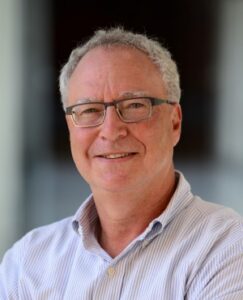 Dr. Lazar discovered the circadian nuclear receptor Rev-erbα, as well as its heme ligand, transcriptional repression, and interactions with corepressors and histone deacetylases. His work has demonstrated the fundamental importance of Rev-erb and its corepressor complex in the physiology of circadian rhythms and organismal metabolism. Dr. Lazar also discovered that another nuclear receptor, PPARγ, is predominantly expressed in adipocytes and also pioneered the linkage of PPARγ to adipocyte differentiation, insulin resistance, and type 2 diabetes. He also led the way to a genome-wide understanding of PPARγ function, and discovered resistin as a novel adipocyte hormone that impairs insulin action and as the first member of a previously unknown family of secreted resistin-like molecules.
Dr. Lazar discovered the circadian nuclear receptor Rev-erbα, as well as its heme ligand, transcriptional repression, and interactions with corepressors and histone deacetylases. His work has demonstrated the fundamental importance of Rev-erb and its corepressor complex in the physiology of circadian rhythms and organismal metabolism. Dr. Lazar also discovered that another nuclear receptor, PPARγ, is predominantly expressed in adipocytes and also pioneered the linkage of PPARγ to adipocyte differentiation, insulin resistance, and type 2 diabetes. He also led the way to a genome-wide understanding of PPARγ function, and discovered resistin as a novel adipocyte hormone that impairs insulin action and as the first member of a previously unknown family of secreted resistin-like molecules.
Michael Murphy, PhD
Professor of Mitochondrial Redox Biology and Program Director, MRC Mitochondrial Biology Unit, University of Cambridge
“The Role of Mitochondrial ROS Production in Health and Disease” November 21, 2019
 Mike Murphy studied chemistry at Trinity College, Dublin (1980-4) and obtained a PhD in Biochemistry from Peterhouse, University of Cambridge (1984-7), carrying out research in the group of Martin Brand on mechanisms of mitochondrial proton pumping. Mike then carried out postdoctoral work at Columbia University (1988), followed by working as a VSO teacher in Zimbabawe (1989) and as a Lecturer in Biochemistry at Trinity College, Dublin (1990-2). He then moved to the Biochemistry Department at the University of Otago, New Zealand (1992-2001), to set up his own research group, moving up to the level of Associate Professor. During this time he spent sabbatical visits in the lab of Jeff Schatz in Basel and that of Victor Darley-Usmar in Birmingham, Alabama. Mike joined the MRC MBU to establish an independent research group to study mitochondrial dysfunction in 2001. He was appointed an Honorary Fellow of the Royal Society of New Zealand (Hon FRSNZ) in 2012 and was awarded the Keilin Memorial Lecture and Medal in 2016. Mike has been a Wellcome Trust Investigator since 2016. He was appointed Professor of Mitochondrial Redox Biology (Cambridge University) in 2018. Mike was elected Fellow of the Academy of Medical Sciences (FMedSci) in 2019.
Mike Murphy studied chemistry at Trinity College, Dublin (1980-4) and obtained a PhD in Biochemistry from Peterhouse, University of Cambridge (1984-7), carrying out research in the group of Martin Brand on mechanisms of mitochondrial proton pumping. Mike then carried out postdoctoral work at Columbia University (1988), followed by working as a VSO teacher in Zimbabawe (1989) and as a Lecturer in Biochemistry at Trinity College, Dublin (1990-2). He then moved to the Biochemistry Department at the University of Otago, New Zealand (1992-2001), to set up his own research group, moving up to the level of Associate Professor. During this time he spent sabbatical visits in the lab of Jeff Schatz in Basel and that of Victor Darley-Usmar in Birmingham, Alabama. Mike joined the MRC MBU to establish an independent research group to study mitochondrial dysfunction in 2001. He was appointed an Honorary Fellow of the Royal Society of New Zealand (Hon FRSNZ) in 2012 and was awarded the Keilin Memorial Lecture and Medal in 2016. Mike has been a Wellcome Trust Investigator since 2016. He was appointed Professor of Mitochondrial Redox Biology (Cambridge University) in 2018. Mike was elected Fellow of the Academy of Medical Sciences (FMedSci) in 2019.
Holly A. Ingraham, PhD
Professor and Associate Vice Chair, Cellular and Molecular Pharmacology, Herzstein Distinguished Investigator, UCSF, San Francisco, CA
“Female Bones and Behaviors Controlled by Sex-Dependent Hypothalamic Nodes” November 15, 2018
 Biological sex is one of nature’s most robust variables. She is leveraging sex differences to discover how hormone-responsive nodes in the brain and peripheral tissues maintain metabolic, skeletal, and cognitive health. Findings from her research program are highly relevant to women’s health.
Biological sex is one of nature’s most robust variables. She is leveraging sex differences to discover how hormone-responsive nodes in the brain and peripheral tissues maintain metabolic, skeletal, and cognitive health. Findings from her research program are highly relevant to women’s health.
Daniel P. Kelly, MD, PhD
Willard and Rhoda Ware Professor and Director, Penn Cardiovascular Institute, University of Pennsylvania
“Fuel Metabolic Checkpoints as Targets for Cardiometabolic Disease” December 07, 2017
 Dr. Kelly’s research interests stem from an early fascination with rare inborn errors in mitochondrial metabolism in children which cause sudden death and heart failure. As a young researcher at Washington University, Dr. Kelly defined the genetic basis for a common inborn error in mitochondrial fatty acid oxidation, work that led to the development of practical screening tests for newborns. Thereafter, he became interested in how similar derangements in cardiac energy metabolism contribute to heart failure and sudden death in common acquired forms of mitochondrial diseases caused by hypertension, ischemic injury, and diabetes. His work defined the transcriptional regulatory axis involved in the control of cardiac fuel and energy metabolism through pioneering fundamental studies on nuclear receptors including the PPARs, estrogen-related receptors (ERRs), and their transcriptional coactivator PGC-1.
Dr. Kelly’s research interests stem from an early fascination with rare inborn errors in mitochondrial metabolism in children which cause sudden death and heart failure. As a young researcher at Washington University, Dr. Kelly defined the genetic basis for a common inborn error in mitochondrial fatty acid oxidation, work that led to the development of practical screening tests for newborns. Thereafter, he became interested in how similar derangements in cardiac energy metabolism contribute to heart failure and sudden death in common acquired forms of mitochondrial diseases caused by hypertension, ischemic injury, and diabetes. His work defined the transcriptional regulatory axis involved in the control of cardiac fuel and energy metabolism through pioneering fundamental studies on nuclear receptors including the PPARs, estrogen-related receptors (ERRs), and their transcriptional coactivator PGC-1.
The Kelly laboratory has identified molecular “switches” in this regulatory pathway that potentially define distinct forms of heart failure, an important step towards identifying therapeutic targets for phenotype-specific treatment of heart failure. His laboratory is also engaged in translation of these discoveries, including early stage drug discovery efforts.
Dr. Kelly is a recipient of the American Heart Association Basic Science Prize and currently serves on the Editorial Boards of The Journal of Clinical Investigation and the Journal of the American College of Cardiology-Basic to Translational Science.
Alan D. Cherrington, PhD
Jacquelyn A. Turner and Dr. Dorothy J. Turner Chair in Diabetes Research,
Professor of Molecular Physiology and Biophysics, Vanderbilt University School of Medicine
“Control of Hepatic Glucose Uptake and
Storage in the Postprandial State”
October 06, 2016
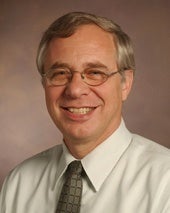 Alan Cherrington is a professor at Vanderbilt University in both the Department of Molecular Physiology and Biophysics, and in the Department of Medicine. He currently holds the Jacquelyn A. Turner and Dr. Dorothy J. Turner Chair in Diabetes Research and is a passionate researcher, mentor and educator.
Alan Cherrington is a professor at Vanderbilt University in both the Department of Molecular Physiology and Biophysics, and in the Department of Medicine. He currently holds the Jacquelyn A. Turner and Dr. Dorothy J. Turner Chair in Diabetes Research and is a passionate researcher, mentor and educator.
Morris J. Birnbaum, MD, PhD
Senior Vice President and Chief Scientific
Officer of the Cardiovascular and Metabolic
Disease (CVMED) Research Unit, Pfizer
“Glycogen Synthesis and Beyond:
The Complex Regulation of Hepatic Metabolism” November 18, 2015
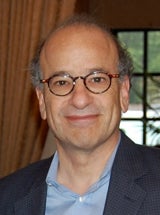 Morris J. Birnbaum is currently Senior Vice President and until recently Chief Scientific Officer for the Internal Medicine Research Unit at Pfizer located in Cambridge, MA. In this role, Dr. Birnbaum led the discovery of novel transformative therapies to reduce the prevalence of cardiometabolic dysfunction, thereby eliminating or diminishing the impact of common diseases on life expectancy and quality. He was responsible for guiding the portfolio and technology strategies to bring programs from discovery through to proof of concept in the clinic. He now serves as an advisor to IMRU.
Morris J. Birnbaum is currently Senior Vice President and until recently Chief Scientific Officer for the Internal Medicine Research Unit at Pfizer located in Cambridge, MA. In this role, Dr. Birnbaum led the discovery of novel transformative therapies to reduce the prevalence of cardiometabolic dysfunction, thereby eliminating or diminishing the impact of common diseases on life expectancy and quality. He was responsible for guiding the portfolio and technology strategies to bring programs from discovery through to proof of concept in the clinic. He now serves as an advisor to IMRU.
Dr. Birnbaum joined Pfizer in 2014 after an almost 30-year career as a Physician Scientist, leading an academic laboratory focused on basic research in fundamental mechanisms in metabolic regulation. He occupied roles as Associate Professor of Cell Biology at Harvard Medical School, Professor of Medicine and Cell Biology at the Perelman School of Medicine of the University of Pennsylvania, and Investigator of the Howard Hughes Medical Institute. At the University of Pennsylvania, Dr. Birnbaum also served as Associate Dean for Biomedical Cores and Associate Director of the Institute for Diabetes, Obesity and Metabolism. He completed his undergraduate, graduate, and medical training at Brown University in Providence, Rhode Island before clinical training in Internal Medicine at Barnes Hospital of Washington University School in St. Louis, MO, and postdoctoral studies at the University of California, San Francisco and Sloan-Kettering Cancer Institute.
Guest Speakers:
Alfred Gilman (Cancer Prevention Res Inst Texas) – Opening remarks
Ronald Evans (Salk Institute) – Nuclear hormone receptors & transcription
Bruce Spiegelman (Harvard Med) – Nuclear receptors: linking obesity & diabetes
Alan Saltiel (Univ Michigan) – Insulin signaling & membrane transport
Michael Czech (U Mass) -Diabetes and inflammation
Lewis Cantley (Harvard Med) – PI3 kinases in cancer
Sarah Spiegel (Med Coll Virginia.) – Lipid signaling in disease
Jeffrey Friedman (Rockefeller Univ) – Neuronal control of appetite & obesity
Joan Massague (Memorial Sloan-Kettering) – Signaling in metastasis
Ferid Murad (George Washington Univ) – Closing remarks

